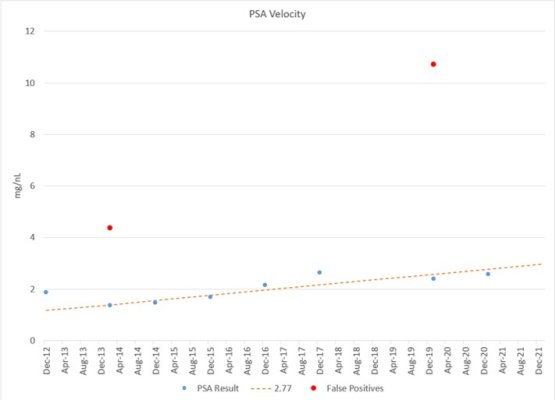For the gentlemen, but ladies chime in if you like.
The linked article (no sources, but hosted on a medical group's website) suggests 70% false positivity rate for the PSA test. Really? How can a test be offered with such a high false positive rate. If the article is true.
I googled a bit and found many examples talking about whether doing a PSA test is, or isn't, the best choice for the patient. I haven't found an NIH or FDA document that quantifies the false positivity rate.
What is everyone's view on the high false positivity rate claimed for the PSA test? Thanks.
https://www.ncfmg.com/wp-content/upl...-screening.pdf
The linked article (no sources, but hosted on a medical group's website) suggests 70% false positivity rate for the PSA test. Really? How can a test be offered with such a high false positive rate. If the article is true.
I googled a bit and found many examples talking about whether doing a PSA test is, or isn't, the best choice for the patient. I haven't found an NIH or FDA document that quantifies the false positivity rate.
What is everyone's view on the high false positivity rate claimed for the PSA test? Thanks.
https://www.ncfmg.com/wp-content/upl...-screening.pdf

